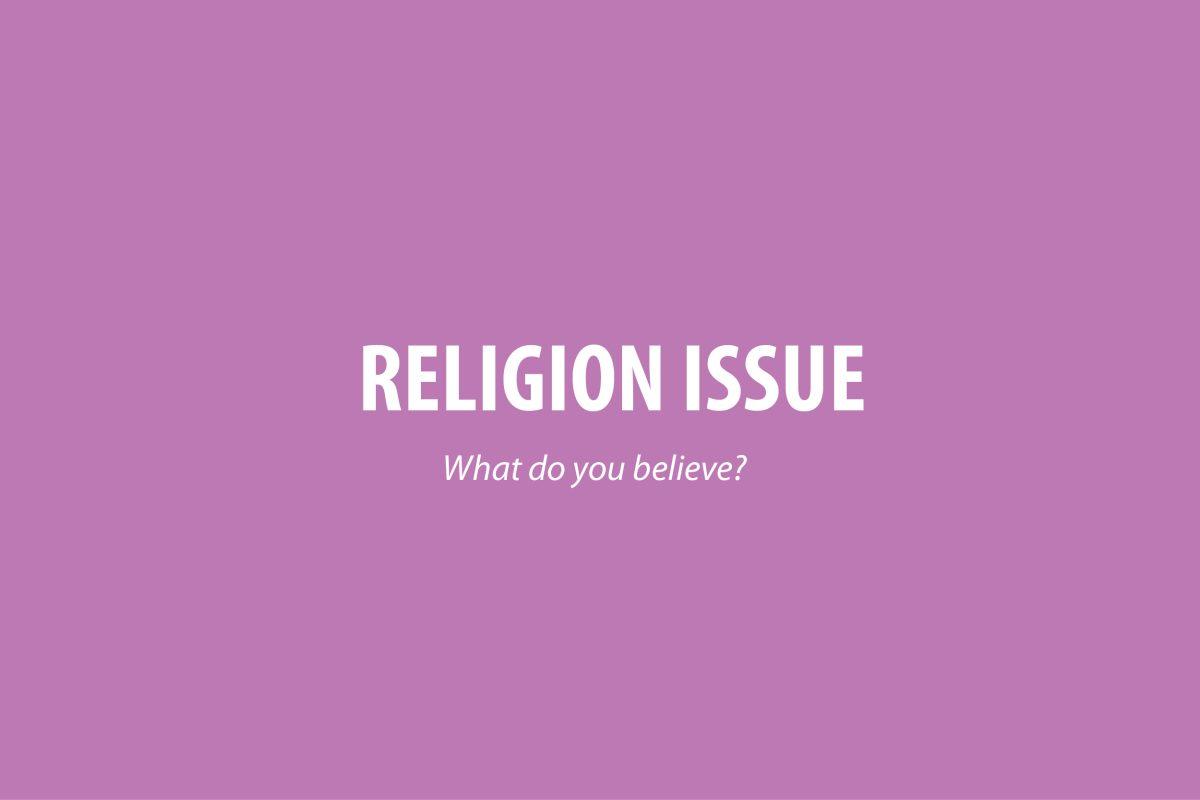
Religion Issue Web 1
Many parents use religion as a guideline for raising their children, and more than 75 percent of Americans identify with a religion, according to a 2014 Pew Research Center poll. But for children of religious families, college serves as a crossroads, a time in which they must take their faith into their own hands — or not.
“Religion is a way for parents to pass on their values and hopes to the next generation,” said Karey A. Harwood, an associate professor of Religious Studies. “It is a way to convey the message of being a good person and how to live a good life.”
Being in college and away from home can affect how and if students maintain their religious practices. In college, students must decide how and if they will continue their religious practices in a new environment.
“I grew up in a family that’s pretty devoted when it comes to religion. Everyone in my family is Catholic. Religion is not only the responsibility of the parents,” said Gratz Redoble, a graduate student studying electrical power systems engineering and a Roman Catholic. “I try to stick with what I grew up with, but it’s a bit difficult if you get to be exposed with other things as well.”
Originally from the Philippines, Redoble explained how the meaning of going to church has changed since he started college. Back in his home country he would go to church as often as he could because it was more accessible to him than it is at NC State.
“I get caught up with work, so right now I just go to church because it has become a routine,” Redoble said. “When I was back in the Philippines, going to church is something more personal.”
Reda Slimani, a graduate student studying business in the SKEMA program and a Muslim, talked about the values his religion instilled in him.
“I learned how important respect and honesty were and also how I had to be considerate of others,” Slimani said. “It is an everyday guideline, and it made me the man I am.”
The presence or absence of religion can play a role in shaping identity. Religious traditions can weaken or strengthen when passed from one generation to another. Each generation develops their own version of how to interpret how they practice religion.
“I do share the same values than my parents, but not entirely, though. They are probably much more strict on some things,” Redoble said. “My mom is way more into it than me, but I think I’m comfortable enough with my relationship with God without having to be really reading the Bible every day.”
Religious traditions also change from generation to generation in society. Environment, society and scientific research have historically impacted the evolution of religion, and what its values mean to its believers.
“Religion changes in response to social changes,” Harwood said. “Religion also changes as our scientific knowledge improves. Many things that we assume are timeless and unchanging actually have a specific historical context.”
Due to these social changes, scientific improvements and the evolution of human knowledge, some religious traditions have been adapted to contemporary times, resulting in a slight drift from their core principles.
“Even as religious traditions try to hold onto their core values, they are challenged to respond to new developments, like the new techniques for human reproduction made possible by in vitro fertilization and the donation of gametes,” Harwood said.
Slimani said because of their old age, revisions of the text should be considered.
“You must not take them literally and be narrow-minded, but have a more contemporary understanding of them, understanding that is in line with the world we live in,” Slimani said.
Slimani experienced a social change and explained how he changed his mind regarding same-sex marriage over time.
“In the Quran, gay marriage is a sin, and I automatically thought I wouldn’t consider it,” Slimani said. “However a law now authorizes gay marriage. I was first hesitant. I thought a lot and watched debates, and finally I’d rather see happy couples than constrained humans.”
Harwood reminded that trends are always paired with counter trends.
“You sometimes need both legal changes and changes in the hearts and minds of people in order to move towards acceptance,” Harwood said.
‘Faith is a house with many rooms’: Why we decided to talk about religionReligious organizations on campusCelebrating Diwali and still making it to classChristian Science and the ‘power of prayer’Religion professors strive to teach neutrality, understanding of other religionsComing to terms with religion: a Jehovah’s Witness’ storyCOLUMN: Terrorism has no religionCOLUMN: A world at war: the danger of attacking religious freedomCOLUMN: The nine universal vices and virtues